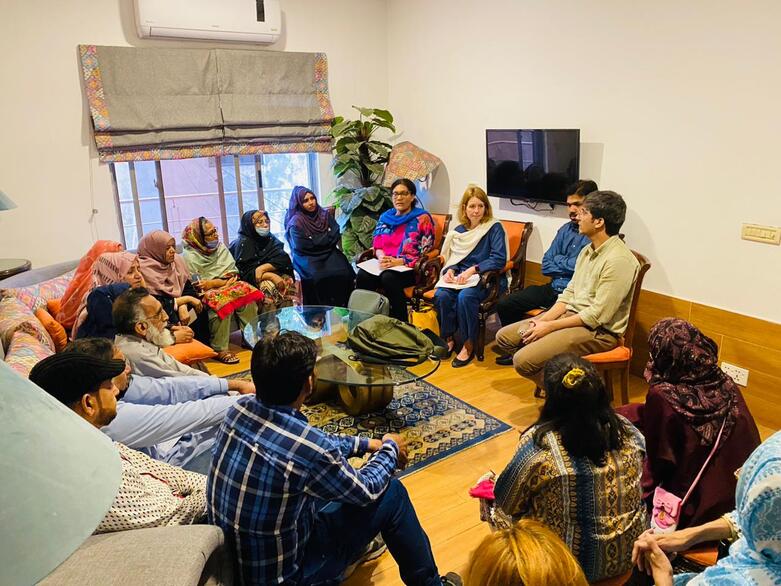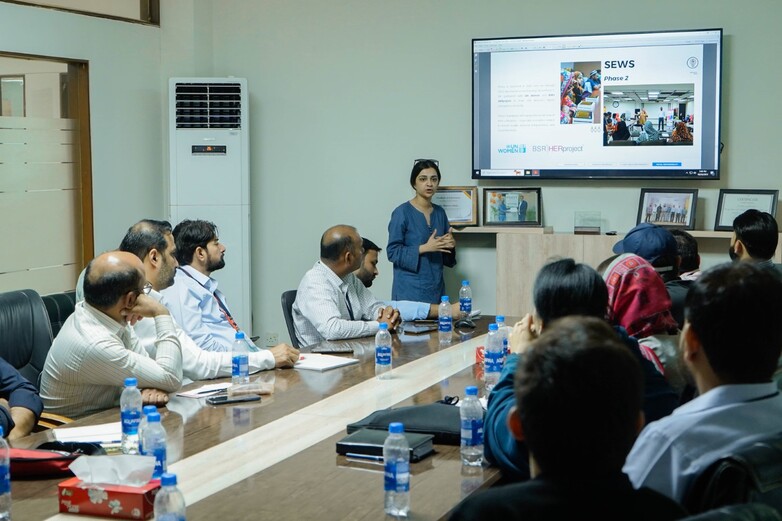Reducing inequalities and promoting employment for women and people with disabilities in the textile industry in Pakistan
Promoting employment by strengthening the role of women
-
Commissioning Party
German Federal Ministry for Economic Cooperation and Development (BMZ)
-
Country
-
Lead executing agency
More
-
Overall term
2024 to 2026
-
Other Stakeholders
Punjab Women Development Department (PWDD), Labour and Human Resource Department (LHRD), Small and Medium Enterprises Development Authority (SMEDA), Ministry of Human Rights (MoHR), Provincial Welfare Department of Punjab (PWDP), SMEs, educational institutions and civil society partners.
-
Products and expertise
Economic development and employment
Context
The textile and fashion industry in Pakistan discriminates against women and people with disabilities, making it more difficult for them to find employment. Despite several initiatives to promote gender equality, significant gender inequalities remain in the workplace in textile and fashion industry.
Objective
The income and employment situation of women and people with disabilities in the textile and fashion industry in Pakistan is improved.

Approach
Cooperating closely with representatives from the public and private sector as well as civil society, the project drives transformative changes towards a gender-equitable and inclusive development of Pakistan's textile and fashion industry. Its key measures to promote equality are the following:
- Establishing technical support measures to promote an inclusive work environment with a specific focus on women and people with disabilities. This involves effective grievance systems, an improved working environment, occupational health and safety as well as quality and diversity management according to gender and disability.
- Fostering cooperation among relevant private and public stakeholders in the textile and fashion industry on the topics of diversity and employment of women and people with disabilities (PWDs). Stakeholders include government institutions, universities and vocational schools, as well as private companies in the textile and fashion industry.
- Introducing on Job Trainings (OJT) to equip women and PWDs with essential skills for securing employment as well as leadership training programmes for women and PWDs, aiming for leadership positions within the industry

Last update: December 2023






